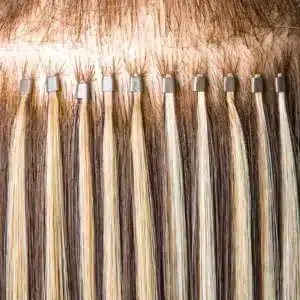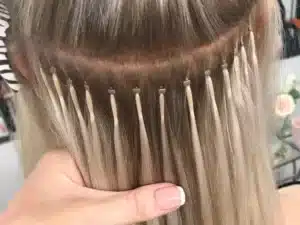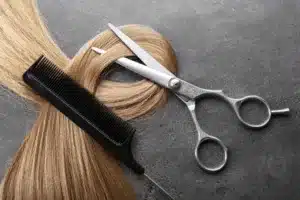Adding extensions can completely transform your client’s look—but with so many options, how do you choose the right one? Let’s break down every type in detail.
To answer “what are different types of hair extensions,” we’ll explore all major extension types—tape, weft, keratin, and temporary—covering subtypes, installation, pros, and use cases.There are many types of hair extensions in each category, each with its own characteristics and advantages.
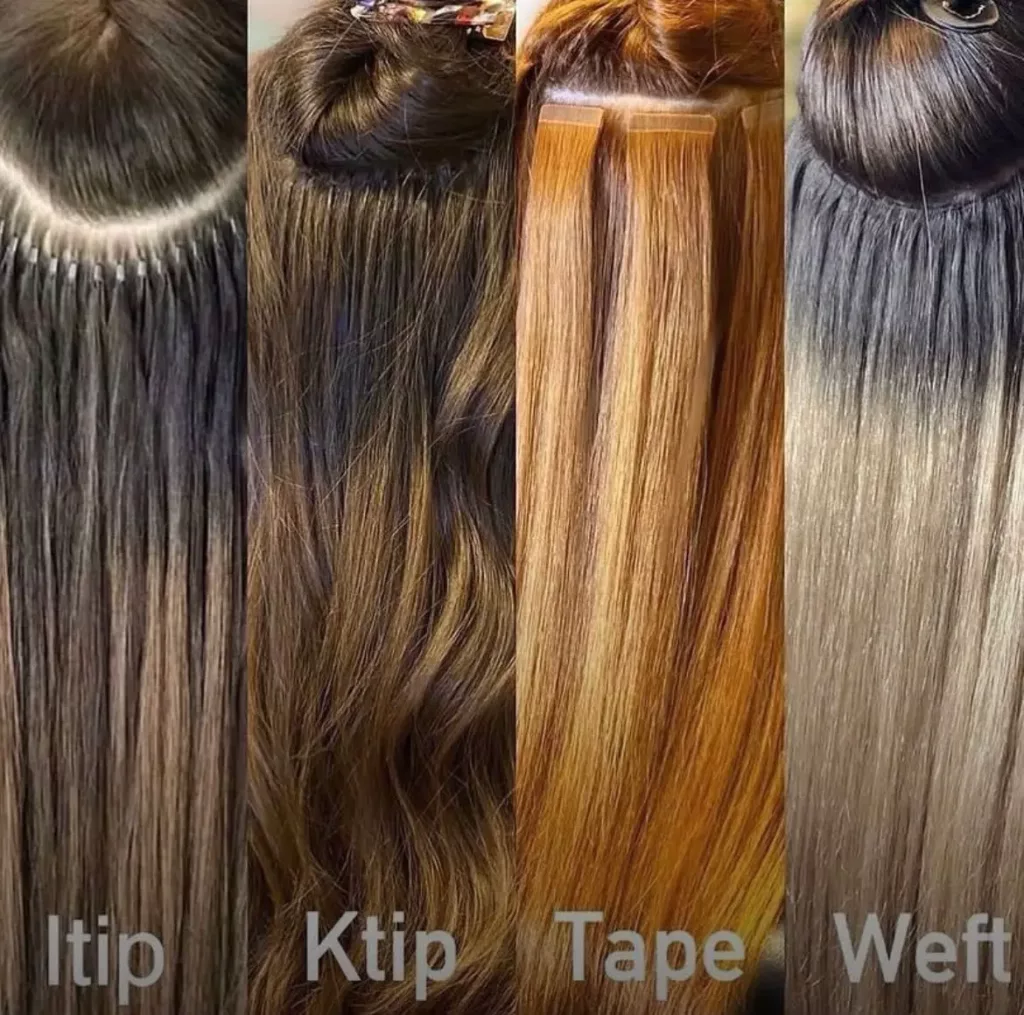
Whether you’re a salon owner, stylist, or wholesale distributor, understanding these options helps you make informed decisions for your clients or brand.
What Are Different Types of Hair Extensions?
There’s no one-size-fits-all. Each hair extension method offers its own pros and cons, and each has subtypes designed for specific use cases. Here’s the breakdown.
Tape-In Hair Extensions
1. Classical Tape-In Hair
A sandwich-style method where the client’s natural hair is placed between two pre-taped extensions. This method is fast, flat, and ideal for volume and length.

2. Invisible Tape-In Hair
Hair is injected into a transparent PU base, giving the illusion that the hair is growing from the scalp. It offers the most natural finish of all tape styles.

3. Stitched Tape-In Hair
These have fabric sewn on the adhesive base for added durability and less shedding. They act as a barrier, reducing adhesive exposure to the client’s hair.

4. Micro Tape-In Hair
Uses a unique “flower” folding technique to evenly disperse hair, blending naturally with the client’s own strands. Ideal for styling versatility.

5. Mini Tape-In Hair
Small and discreet tapes perfect for thin or fine hair types. Blends easily while reducing visibility and adding volume.

6. Invisible Tape Weft
A pre-taped weft strip with injected hair. Combines weft and tape benefits into one fast, seamless application. Especially popular in full cuticle Remy hair extensions.

7. Long Tape Weft Hair Extensions
Similar to above, but in longer formats—ideal for fast, full-head installs with maximum coverage.
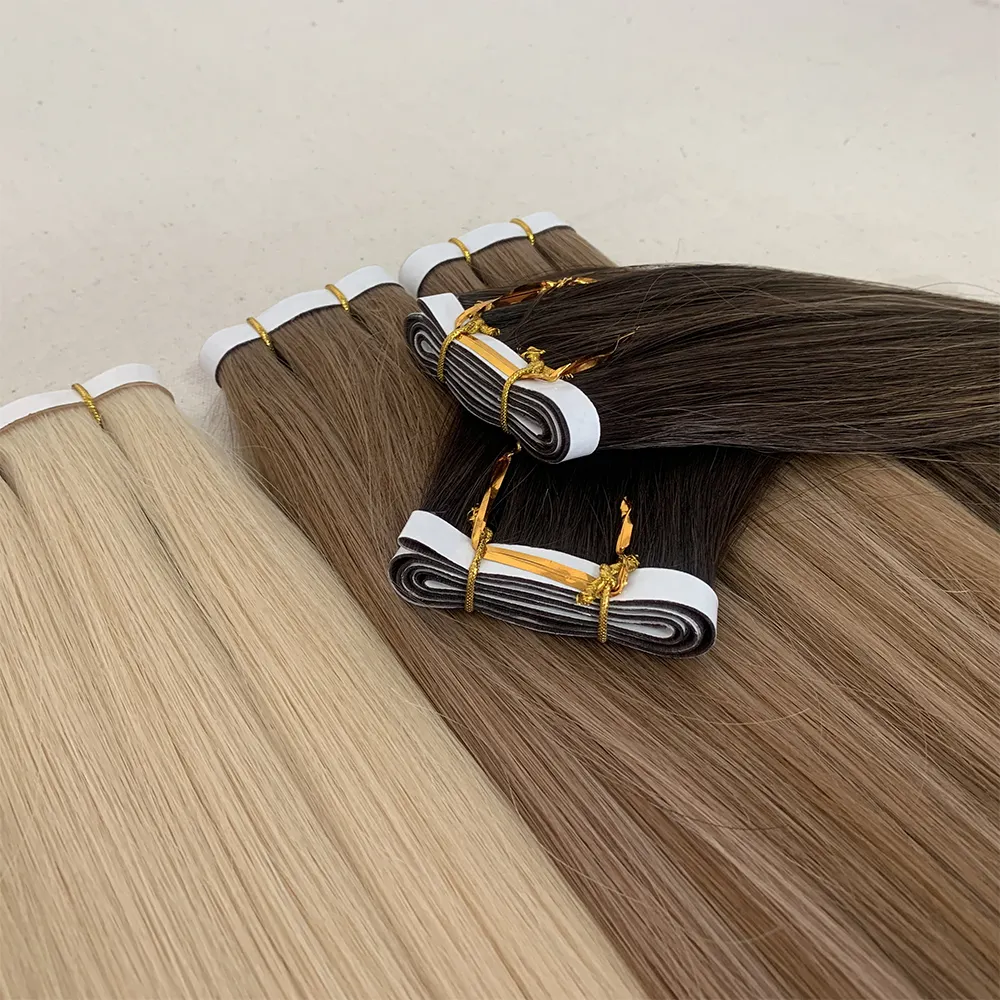
Keratin Hair Extensions
1. I-Tip Hair
No heat required. Installed using beads or rings. Offers 360° movement and great for reuse.
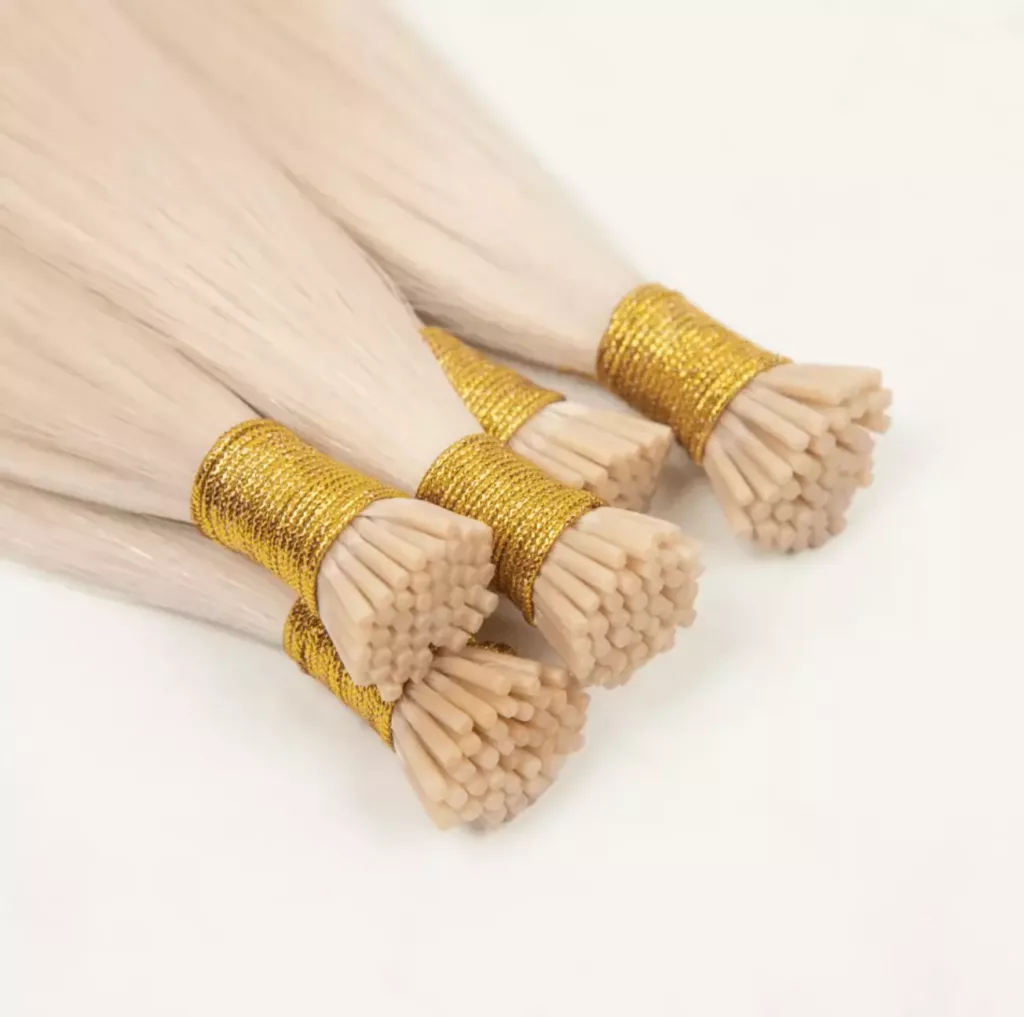
2. U-Tip Hair
Also called nail tips. These require heating with a fusion tool. Bonds are strong, long-lasting, and seamless.
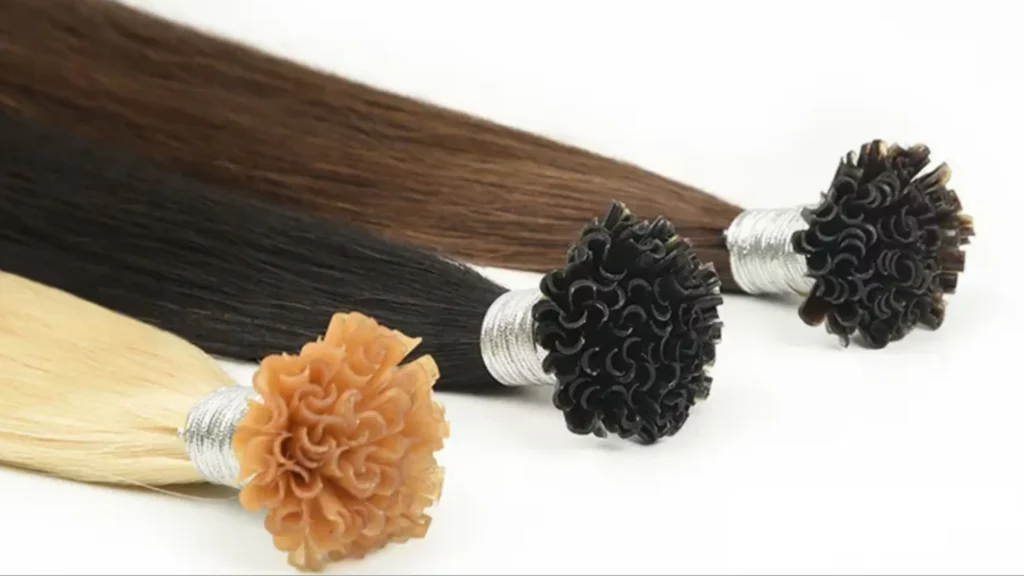
3. V-Tip Hair
Shaped like a “V” instead of a “U,” offering a flatter and more discreet bond. Good for thin hair.

4. Flat Tip Hair
Most customizable keratin tip. Can be cut and shaped by stylists before application. Offers durability and flexibility.

5. Nano Ring Hair
Nano-sized beads, 90% smaller than regular micro-rings, offer an almost invisible install. Very gentle.
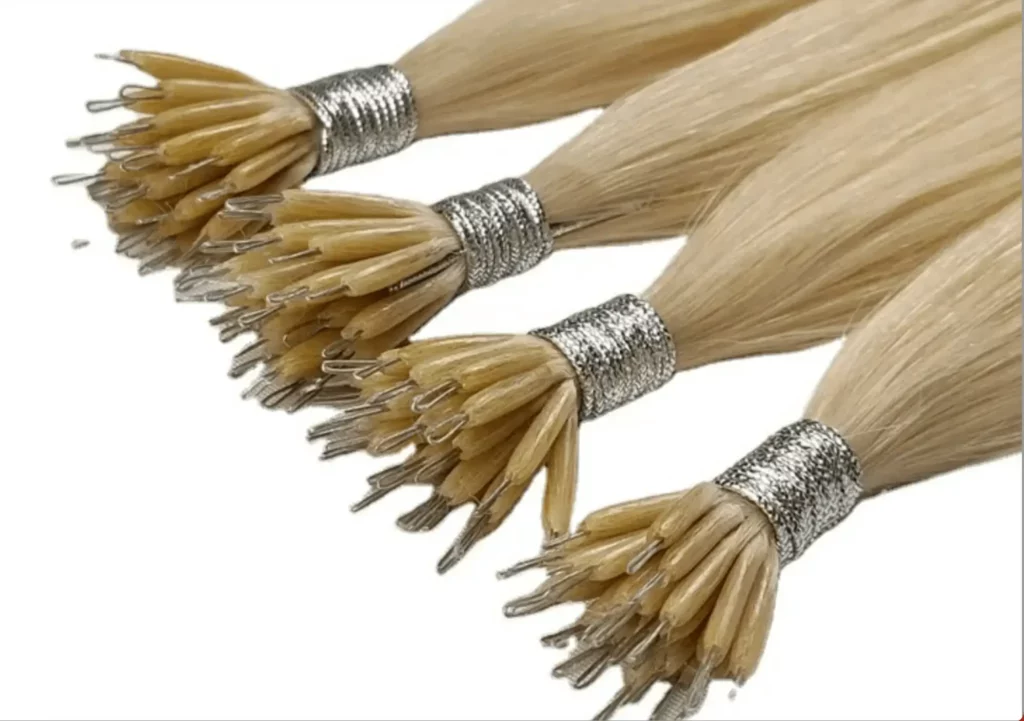
6. Micro Ring Hair
A classic no-heat method. Beads clamp the extension strand with the natural hair. Reliable and reusable.
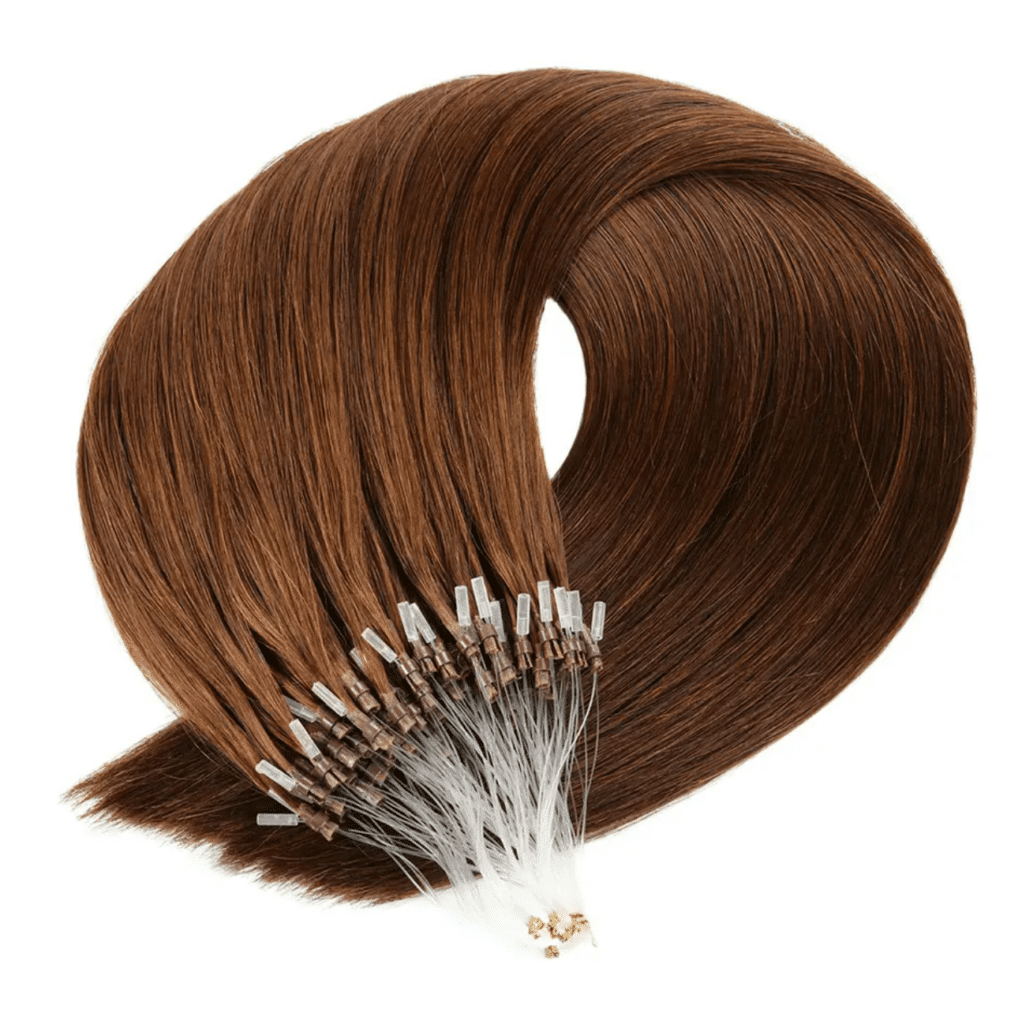
7. F-Tip Hair
Similar to nano rings but uses soft plastic tips instead of metal. Lightweight and extremely discreet.

Weft Hair Extensions
1. Regular Machine Weft
Sewn by machine, double-layered for strength. Versatile, sturdy, and ideal for most hair types.

2. Volume Wefts
Triple-layered for full looks with fewer wefts. Great for comfort and density.

3. Hand-Tied Wefts
Sewn by hand, thin, flat, and flexible. Not meant to be cut. Perfect for luxury installs.

4. Genius Wefts
Hybrid of hand-tied and machine wefts. Can be cut without shedding. No return hair. Dominates the premium market.

5. Flat Wefts
Thin, flat, and silk-based. Less bulk and more comfort. Can be cut without fraying.
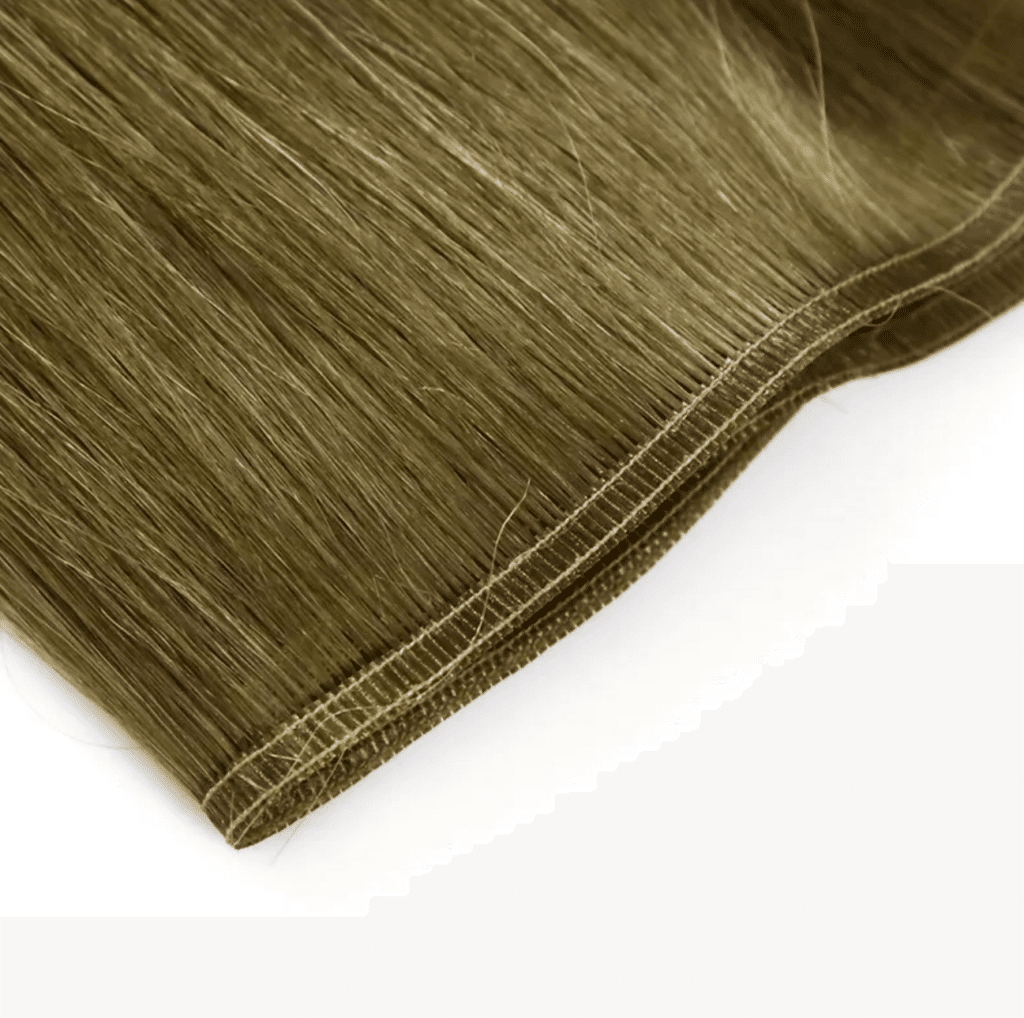
6. Butterfly Wefts
Feature spacing holes for needle-passing. Fastest install method with unmatched comfort and innovation.
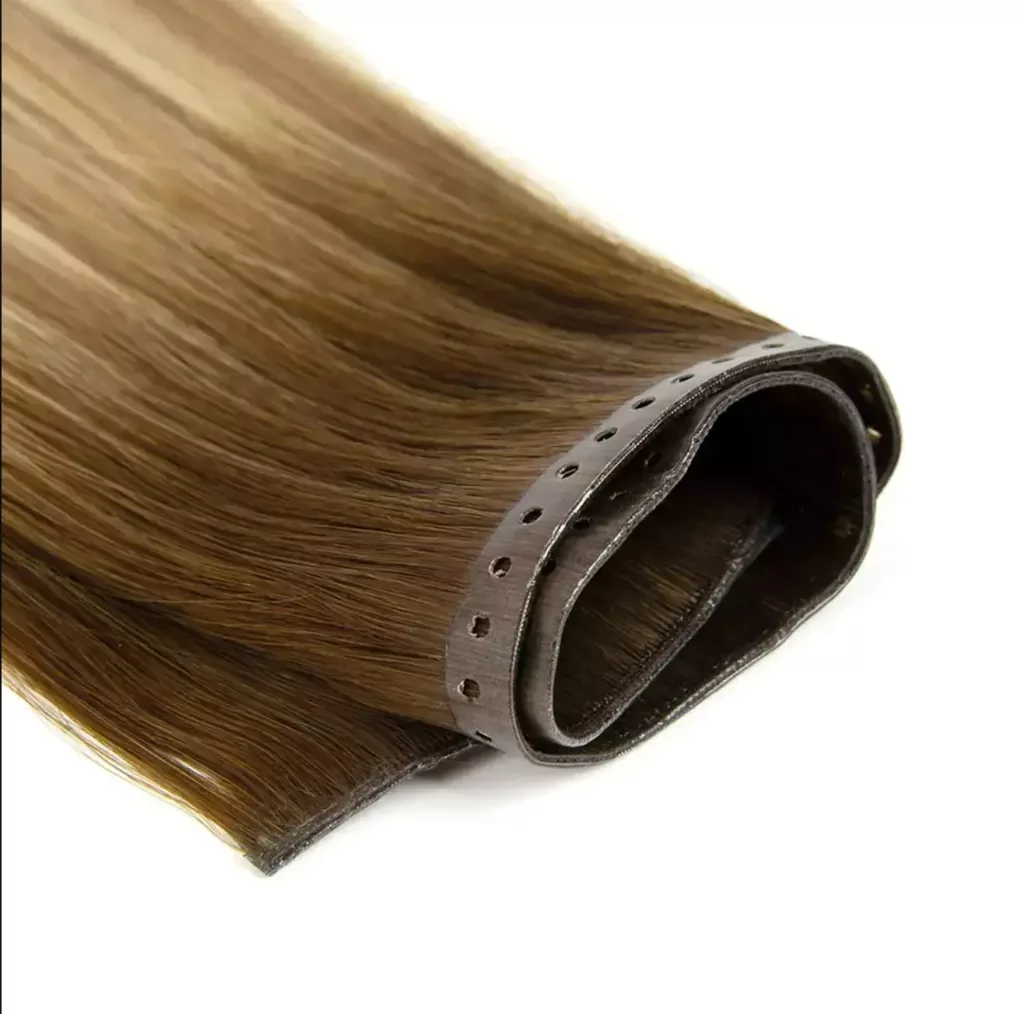
7. Volume Genius Weft
Triple-layered genius weft with volume. No shedding. No return hair. The best of both worlds.
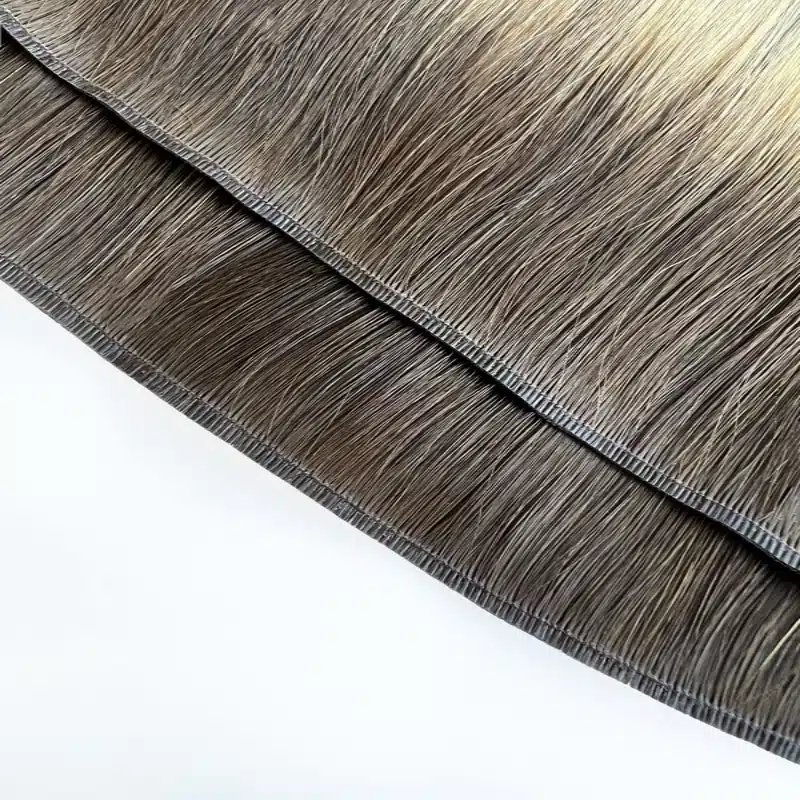
Temporary Hair Extensions
1. Classical Clip-In Hair
Quick DIY application. Adds volume and length. Great for temporary transformation.
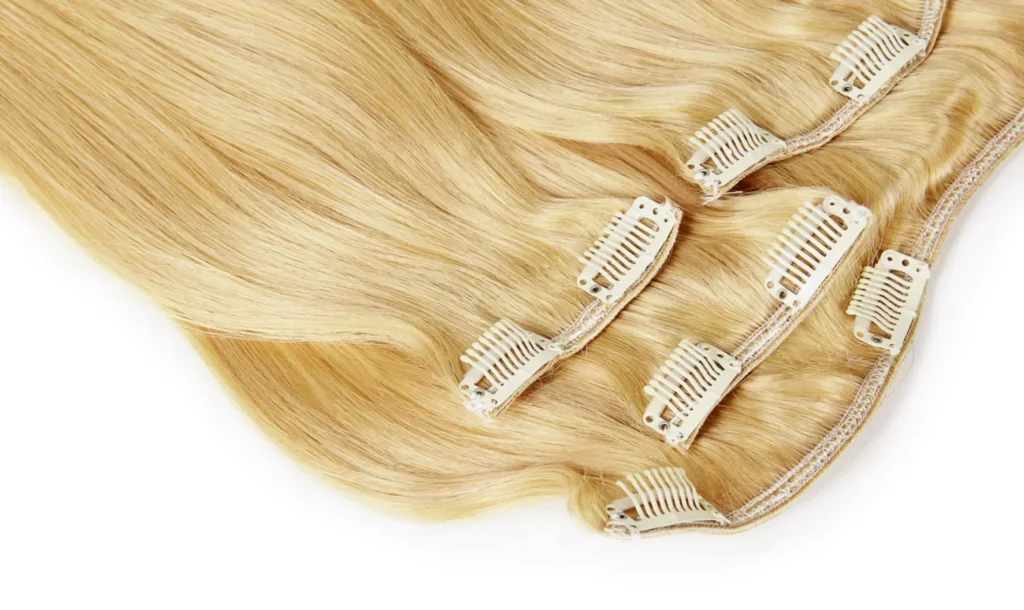
2. Lace Clip-In Hair
Hair is attached to lace base for a softer, more flexible and natural finish.

3. Seamless Clip-In Hair (PU)
PU base gives a flat finish. Hair is injected into strip. More invisible than traditional clip-ins.

4. Invisible Clip-In Hair (Injected)
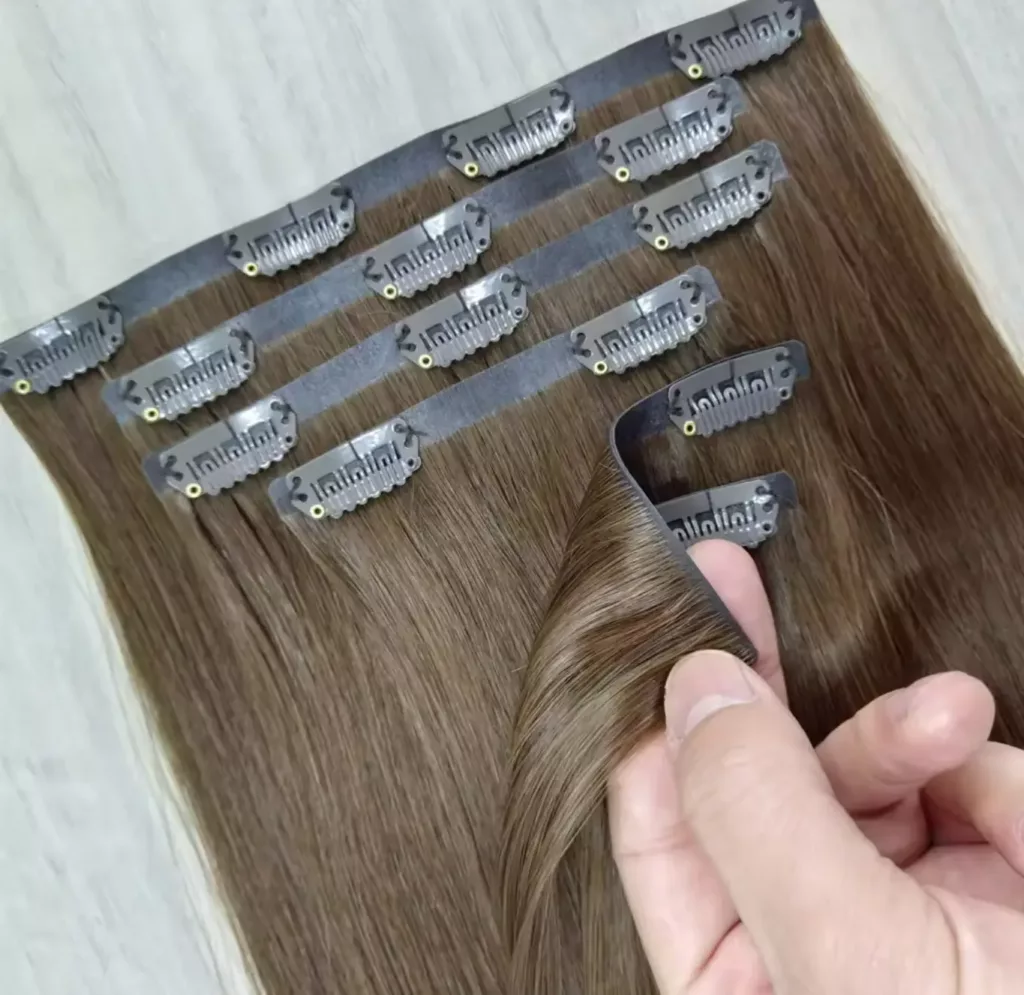
Premium grade. Injected strands into flexible PU strip. The most seamless clip-in available.
5. Ponytail Hair Extensions
Wrap-around design. Adds instant volume and length to ponytails. Easy and non-damaging.
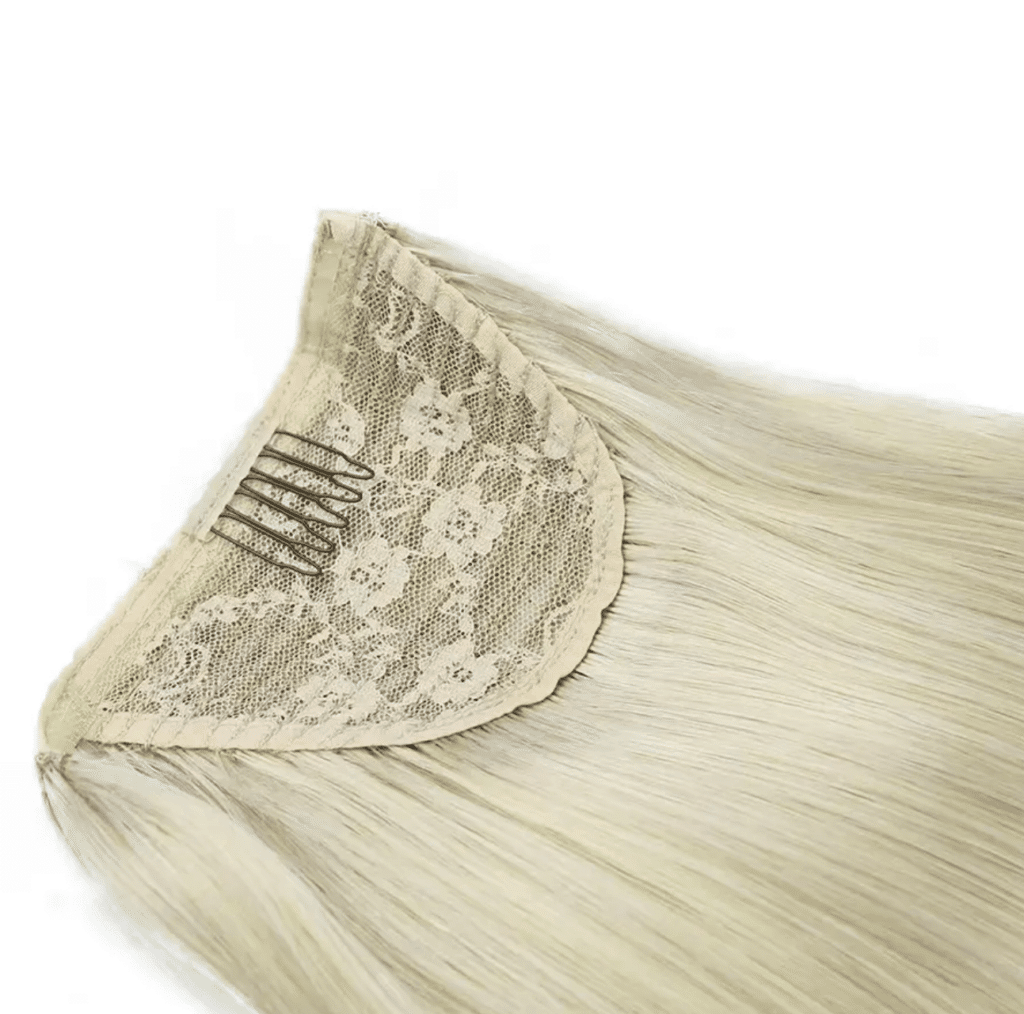
6. Halo Hair
Wire-based extension that rests on the crown. No clips or glue needed. Perfect for no-damage wear.

Which Type of Hair Extensions Are Best?
The “best” depends on your client’s lifestyle, hair type, and end goal.
Tape-ins are ideal for quick installs.
Keratin options offer longevity and custom shaping.
Wefts provide versatility for professionals.
Temporary extensions suit clients wanting change without commitment.
What’s the Healthiest Type of Hair Extension?
Nano rings, I-Tips, and Halo extensions are top contenders here. They use little or no heat, glue, or adhesives, reducing long-term strain on natural hair.
What Extensions Are Best for Thin Hair?
If your client has fine or thinning hair, consider:
- Nano ring extensions (smallest and most invisible)
- Micro tape-in or mini tape-in extensions (designed for fine hair)
- Injected or invisible tape (flat, seamless)
- Halo hair extensions (zero tension on natural roots)

FAQ
Q: How long do tape-in extensions last?
A: Typically 6–8 weeks before requiring a reinstallation.
Q: Are keratin bonds damaging?
A: Not if applied and removed by a trained stylist. Heat fusion can be safe with proper technique.
Q: What’s the difference between hand-tied and genius weft?
A: Genius wefts can be cut and don’t shed, offering more flexibility.
Q: Can clip-ins be worn every day?
A: Yes, but they should be removed before sleep and washed weekly.
Q: Do Halo extensions fall off?
A: No, if installed correctly. They’re held securely by your own hair’s weight over the wire.
Q: Which method is easiest for DIY users?
A: Clip-ins and halo are best for at-home use. Tape-ins and keratin should be applied by a pro.
Q: Which option works for updos or ponytails?
A: I-Tip, nano ring, and ponytail extensions are ideal for styling flexibility.
Q: Can tape-ins be reused?
A: Yes. Just clean the tape area and apply new adhesive before reinstalling.
My Opinion
As a factory owner working closely with high-end salons and pro stylists, I’ve seen trends come and go. But one thing is constant: quality always wins.
In my view, full cuticle hair extensions—especially in forms like invisible tape-in, genius weft, and nano ring—represent the future. They balance durability, comfort, and style like nothing else. When paired with the right technique, the transformation is not just visible—it’s powerful.
Our job is to deliver consistency and innovation. Your job is to wow your clients. And together, that’s how we redefine professional extensions.
Conclusion
Hair extensions come in many forms. Knowing their types—and the pros and cons of each—helps you provide better results and grow your business with confidence.
where to buy hair extensions
Hibiscus Hair Manufacturer has been dedicated to producing high-quality hair extensions for 25 years and is a recognized leader in the industry. If you are interested in finding a reliable hair extensions supplier and wholesale for your brand, please visit our website for more information:

